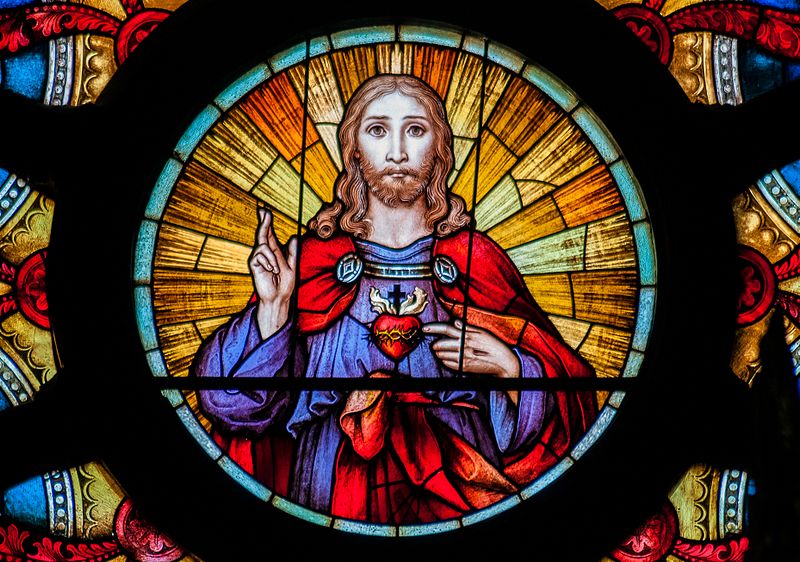Dear Theologika,
Why is there this big devotion to the Sacred Heart of Jesus? Don’t people realize that Jesus loves them unconditionally?
Dear Unconditionally,
Unfortunately, many people don’t experience unconditional love when they are growing up. Sometimes they can even grow up with a notion of God as a stern, judgmental parent. They get caught up in the question of whether God is all loving or all just. They haven’t been taught that no one can be just without being loving. God is what we are called to be — forgiving and compassionate. As humans, we get hurt, hold grudges, and wait for our chance to get “even.”
The disciples asked Jesus how many times they should forgive others. They suggested seven times, but Jesus said “seventy times seven” (Matthew 18:22), a poetic way of saying that there is no limit. It doesn’t matter what we have done or failed to do, God is always there for us. We may turn away, but God never does.
Devotion to the loving truly human and truly divine Jesus has existed from the early centuries of the faith because various people have had trouble accepting an all loving God. Many times Christ the King is lowered to the condition of an earthly king full of violence and vengeance. When we read stories of the last day and the final judgement, we find images of Christ as a victorious earthly general killing and conquering his enemies. These apocalyptic or “end time” stories are part of a message of strength and encouragement for believers who are suffering persecution. God will rescue those who love Him.
The point of these stories is to remind us that our acceptance or rejection of God’s love has very good or very bad consequences for us. The choice is ours, but God always wants the best for us, an end brought about by our accepting His love. That’s the point of the story about the lost or prodigal son. (Lk 15:11-32). God is always hoping that we will come home, like the father in the story who goes out to the road every day hoping to see his lost son. Despite all of the foolish and sinful things the lost son has done, his father rejoices when he returns. He doesn’t judge him. He doesn’t punish him. Father and son have suffered enough.
Devotion to the Limitless Love of God — the Sacred Heart — became important in the 1600s when Catholic and Protestant movements focused on the brokenness and crookedness of humanity and how far we are from God. St. Margaret Mary Alacoque and St. Claude de la Colombière promoted a renewed focus on the love and forgiveness of Christ. Since Christ is truly human and truly divine, Jesus loves us with in a completely human way with unlimited Divine love, a love that continuously overflows in creation, redemption, and resurrection. We can always come home. The arms of Jesus are always outstretched to hug us and hold us close to His Sacred Heart. “I came that they may have life, and have it abundantly.” (Jn 10:10.)
Blessings,
Theologika




